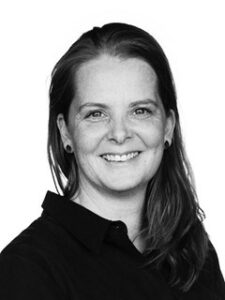DNA-mineral interactions at the molecular level: implications for bacterial evolution and ecological inference

Our Distinguished Panelist:
Karina Krarup Sand, PhD | Associate Professor at the Globe Institute, Faculty of Health and Medical Sciences, University of Copenhagen
Download the Event Flier HERE.
Abstract:
Extracellular DNA (eDNA) in the environment degrades rapidly unless adsorbed onto minerals, which enhances its stability. Currently there are vast amounts of DNA molecules preserved in our sediments. This mineral-bound DNA, although widely used to study past ecosystems, also poses significant implications for bacterial gene acquisition. By utilizing interfacial geochemistry, molecular level and bacterial approaches, this study explores (1) the role of mineral surfaces in DNA preservation in sediments and (2) the potential of soil bacteria to acquire mineral-adsorbed DNA through horizontal gene transfer (HGT).
The findings demonstrate that mineral surface properties substantially impact DNA stability, offering new insights into sedimentary DNA taphonomy. Understanding these interactions can enhance environmental DNA (eDNA) applications for ecosystem. Moreover, our data show that bacterial transformation of mineral-adsorbed DNA can lead to genetic diversity, and is influenced by mineral surface properties. These insights suggest that mineral-facilitated HGT could serve as a pathway for bacterial evolution, potentially affecting gene dispersal over extended temporal and spatial scales. In such an evolutionary scenario mineralogy and interfacial geochemical processes become central to the evolutionary process of maintaining fitness
Speaker Bio:
Karina Krarup Sand, PhD, is an Associate Professor at the Globe Institute, Faculty of Health and Medical Sciences, University of Copenhagen, specializing in interdisciplinary research. Her work embodies a unique integration of geochemistry, microbiology, and evolutionary biology to understand and address pressing global health and environmental challenges. Sand’s pioneering research in these fields has established her as a leader in the study of processes at the intersection of environmental surfaces and life. Dr. Sand also serves as Chair for Globe’s Diversity Programme.
Her pioneering work in studying bio-mineral interactions at the molecular level has recently provided insight into parameters important for DNA preservation in sediments, and how sediments can be considered spatiotemporal gene archives for bacteria. Her work on studying the mechanisms driving bacterial uptake of genetic material stored on mineral surfaces link sedimentary processes to bacterial evolution. The work also provides an explanation for the observed extensive dissemination of antibiotic resistance genes in our environment and is directly relevant for mitigation strategies.
She is an advocate for collecting knowledge that is stored and curated in distinct research silos and co-founded the evolutionary geobiology consortium to drive knowledge collection aiming to address oncoming global threats to human and ecosystem health. Dr. Sand earned her MSc in Geology and her PhD in Chemistry from the University of Copenhagen. She has held various research and academic positions in Denmark, the United States, and the United Kingdom. Her career includes prestigious research fellowships. Her international experience has equipped her with a global perspective and an expansive network within the scientific community
